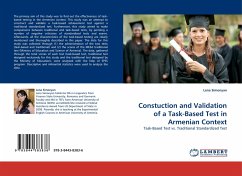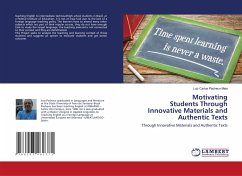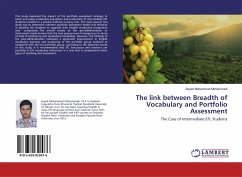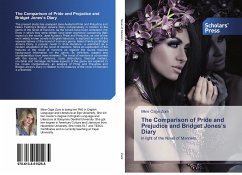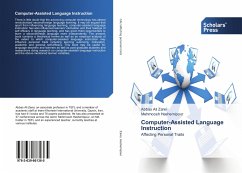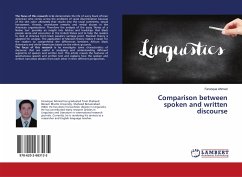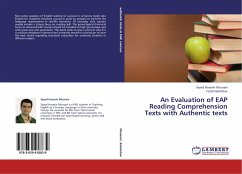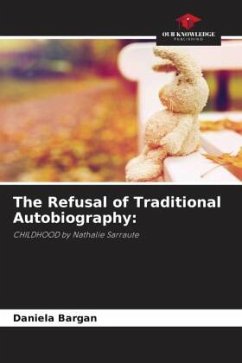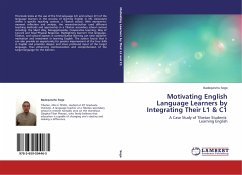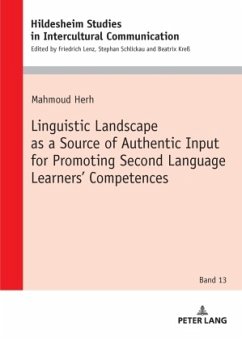
Comparison of Traditional and Authentic Assessment in English Language
Versandkostenfrei!
Versandfertig in 6-10 Tagen
53,99 €
inkl. MwSt.

PAYBACK Punkte
27 °P sammeln!
This book compares different kinds of assessments and deals first of all with authentic assessment and one of its kinds - portfolio assessment. The functions of assessment of students' knowledge and skills are: motivation; learning and correction, upbringing, optimization, informing and research. However, traditional assessment methods (oral answer/written essay, testing involving close-ended/objective and open-ended/subjective questions) are not authentic. These tasks are not part of real-life language applications. An educational portfolio is a collection of evidence (student's essays, poste...
This book compares different kinds of assessments and deals first of all with authentic assessment and one of its kinds - portfolio assessment. The functions of assessment of students' knowledge and skills are: motivation; learning and correction, upbringing, optimization, informing and research. However, traditional assessment methods (oral answer/written essay, testing involving close-ended/objective and open-ended/subjective questions) are not authentic. These tasks are not part of real-life language applications. An educational portfolio is a collection of evidence (student's essays, posters, exercises made up and/or fulfilled by the student that is selected by the student (probably on teacher's advice) to show students' learning outcomes to demonstrate their abilities. In traditional assessment, some students may be highly assessed, but unable to communicate in the real-life situations in the target language adequately, while other students, receiving low grades, effectivelycommunicate. This is why contemporary methods of assessment (including portfolio) are necessary in order them be engaged in real world.



